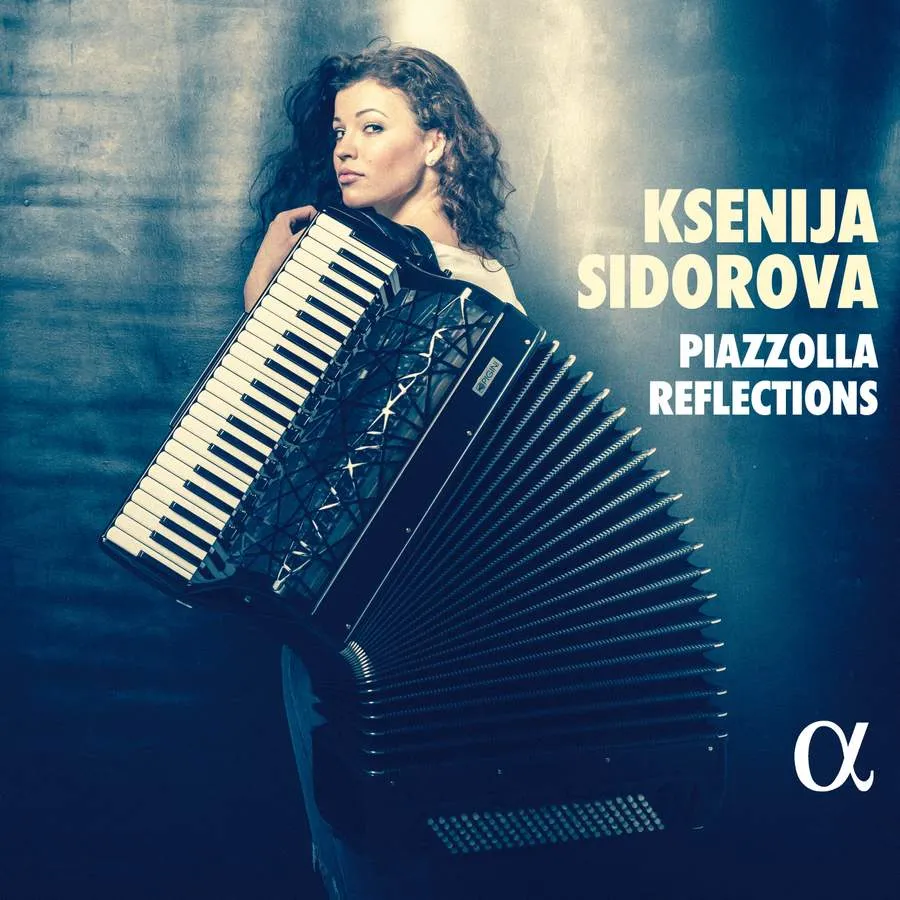
Piazzolla Reflections Piazzolla: Bandoneon Concerto ‘Aconcagua’; Histoire du Tango: Café 1930; etc. Plus works by Akhunov, Angelis, JS Bach, Roffi and Voitenko Ksenija Sidorova (accordion), Alexander Sitkovetsky (violin), Claudio Constantini (piano), Roberto Koch (double bass), Reentko Dirks (guitar); Goldmund Quartet; BBC National Orchestra of Wales/Clark Rundell; NDR Elbphilharmonie Orchester/Thomas Henglebrock Alpha Classics ALPHA664 80:52 mins
A bandoneon is operated by a set of buttons, an accordion by keys and buttons. Yet whatever the instrument, the essence of Astor Piazzolla’s sultry, bittersweet music remains unchanged, offering listeners a choice of hot tangos, slower melodic meditations and not very much in between. Ksenija Sidorova varies the diet with differing instrumentations, four contemporary pieces and the slow movement of Bach’s BWV 974, adapted from an oboe concerto by Alessandro Marcello.
Even if Piazzolla fails to cast the spell clearly experienced by Sidorova herself, the artistry of this Latvian-born musician and her instrumental colleagues still makes this album worthwhile. Dynamic shifts and the sculpting of phrases couldn’t be subtler, while the range of colours is vast, variously boosted by piquant accompaniments featuring piano, violin, plucked double bass and guitar, sometimes a string quartet. Only when Sidorova’s chord buttons are speedily alternated do we ever catch a whiff of heavy breathing and the village band ‘squeezebox’.
Piazzolla’s Aconcagua Concerto, taken from spirited concert performances in Hamburg, might be the biggest exhibit, but there’s greater power in the brooding melody of Soledad, the fleet-footed Yo soy Maria, or the punchy and raunchy Chau Paris.
Among the moderns, two Russians lead the pack with Sergey Voitenko’s subtle and soulful Revelation and the gradually untangled complexities of Sergey Akhunov’s Two Keys to One Poem by J Brodsky. But for Sidorova’s artistry at its most delicate and liquid we have to drop back three centuries, before the accordion’s invention, and revisit dear old Bach.
Geoff Brown